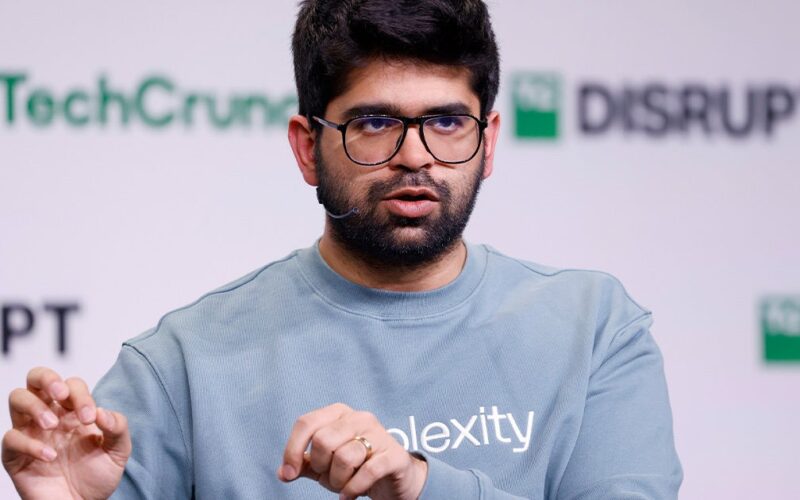This ain’t rocket science, dude.
Simple Definition
Merriam-Webster defines “plagiarism” as “to steal and pass off (the ideas or words of another) as one’s own” — but apparently that definition has perplexed the CEO of a buzzy AI search startup.
As TechCrunch reports, Perplexity chief executive Arvind Srinivas seemed speechless when asked to define plagiarism — which is telling, considering that Perplexity has repeatedly been accused of it in recent months.
During the TechCrunch-hosted Disrupt 2024 conference, Srinivas struggled to summon a response when journalist Devin Coldewey asked him how the company defines the term. He looked around and sighed as a few audience members started laughing.
“Well you must have one!” the reporter said. “I’m curious — you have to have one so you don’t do it by accident.”
“You can ask Perplexity this, actually,” Srinivas said awkwardly, prompting his interviewer to retort, “I thought I was!”
The CEO went on to say that he’s more interested in the actual definition of the term, before saying that Perplexity “always cites its sources” and doesn’t make any ownership claims to the content it shows users.
That assertion runs counter to the many news outlets that have alleged the opposite — including the New York Times, which sent Perplexity a cease and desist letter earlier this month demanding that the firm stop using its journalists’ work.
Though he attempted to expound, the CEO’s continued explanation left a lot to be desired.
“It’s surfacing content from the web, summarizing it in a manner that the user can digest,” Srinivas told journalist Devin Coldewey, “and then provides all this information — exactly how journalists do their job, or academics do their job, or students.”
Fightin’ Words
Incredibly, that non-answer is somehow better than Perplexity’s published work on the question of how it defines plagiarism.
Last week, Srinivas wrote in a company blog post responding to NewsCorp’s plagiarism lawsuit alleging it ripped off the New York Post and Wall Street Journal that publishers simply want his company dead.
“The common theme betrayed by those complaints collectively is that they wish this technology didn’t exist,” the CEO wrote. “They prefer to live in a world where publicly reported facts are owned by corporations, and no one can do anything with those publicly reported facts without paying a toll.”
As TechCrunch notes, that post failed to address news publishers’ salient concerns about Perplexity and others like it: that deploying other peoples’ work on a massive scale and citing the original creators as footnotes isn’t proper citation at all, and could be considered an illegal use of propriety content.
By comparison, Srinivas sputtering on stage is certainly preferable to that brash blog post — but at the end of the day, both messages obfuscate the heart of the matter.
More on AI plagiarism: OpenAI Whistleblower Disgusted That His Job Was to Vacuum Up Copyrighted Data to Train Its Models
Source link
lol

